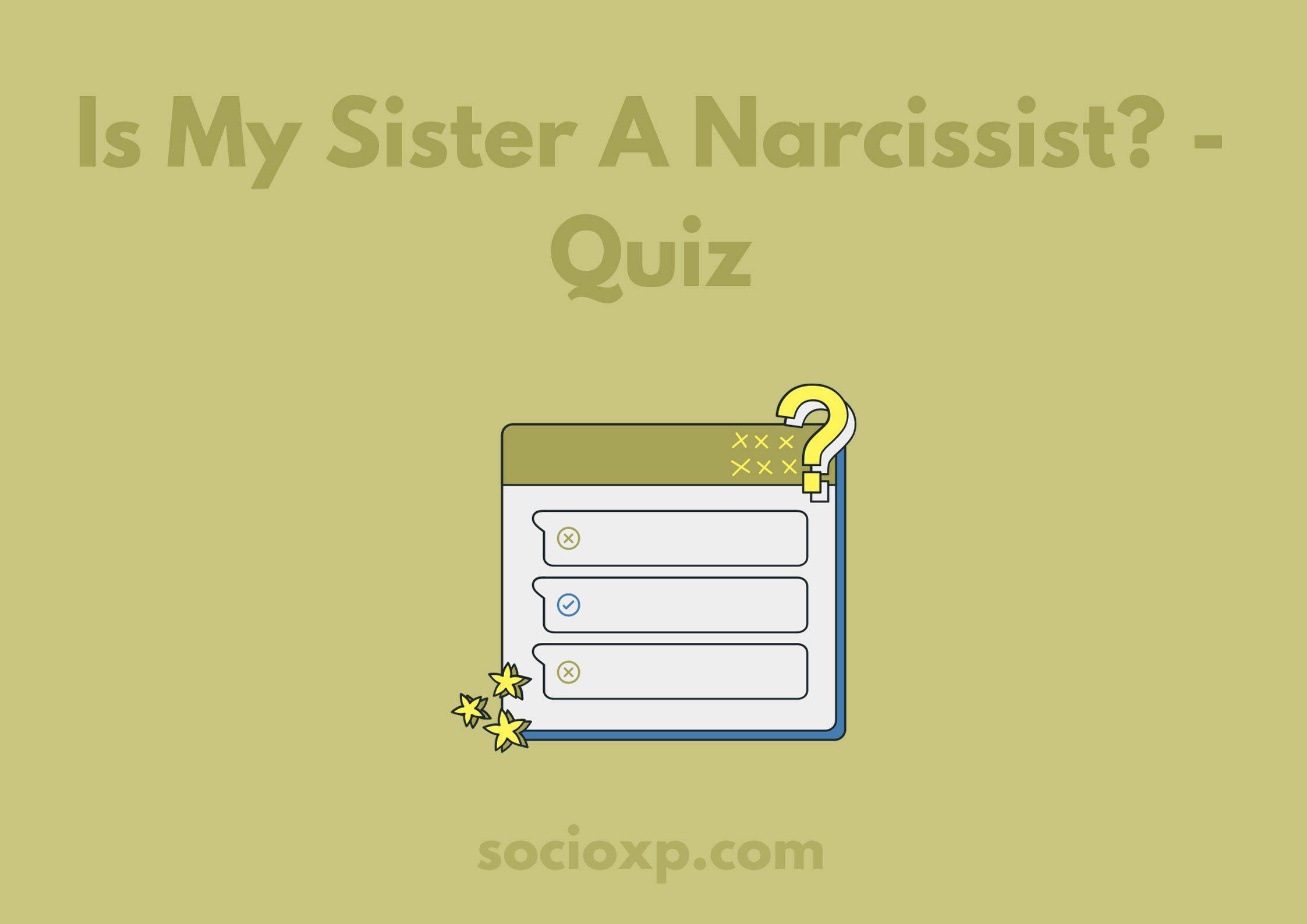Can Someone Become A Narcissist Later In Life? – The Possibilities
Can Someone Become A Narcissist Later In Life? You might have wondered at what age a person is recognized as a narcissist. Is there any fixed age when the narcissistic characteristics and traits are recognizable? Let us know.
Narcissistic characteristics may be dormant for some people and become recognizable when the person reaches the golden years or old age. For some people the development of narcissism might come as early as their teens, while for some narcissism may emerge in their later years, even though the traits may be dormant or active, everyone does possess narcissistic traits but those traits might not be vital for all people.

It might come as a shock that one day you wake up and find out that your mother or father has started gaining narcissistic characteristics lately. But why so?
Aging is often associated with the mellowing of a person and watching them turn kinder, easy-going, understanding, gentle, subtle, and less prone to anger issues as they have experienced life in a full bandwidth than younger people.
However this is not true in all cases, there have been many instances that state people aged seventy-five and above suddenly have reported various symptoms of narcissistic personality disorder. This has been mentioned according to a study published by the National Library of Medicine as stated in an article published by the Inner Toxic Relief.

There have been many instances where people experience that their grandparents or their elderly parents started displaying few traits related to narcissistic personality disorder when they turn seventy-five or eighty.
Now this may also make you inquisitive about how do narcissists deal with their growing age. What happens to Narcissists as they grow old? Do they become more Toxic? As observed by experts, some narcissists tend to leave certain narcissistic traits while some narcissists become more toxic with age.
Can Someone Become A Narcissist Later In Life? – The various possibilities
It is suggested by many mental health experts and psychologists that human traits get magnified with the aging process. Our traits intensify with maturity that comes with growing age. This also applies to narcissistic traits.
Narcissistic traits are ingrained in almost everyone, and people usually do not display those traits on a regular basis in life. But with few people, these traits get intensified with growing age due to insecurities, inabilities, and complexities of growing age.

To understand NPD(Narcissistic Personality Disorder) in a simple form, it is a portrayal of toxic traits in an intensified state than others. The traits may include ego in a magnified state, an extensive need for admiration and praise, and an urge to be superior to others or at least consider oneself to be superior to others. These traits are present in any common person, but for a narcissist, these traits are present in an outrageous amount, and they are intensified when something substandard takes place.
Everyone possesses selfish traits like ego, jealousy, self-praise, selfishness, control over situations in life as much as possible, expecting attention from others, troubles in relationships, rudeness, selfishness, lack of self-reflection, parental pressure, Parental issues, and many more.
Then how do these common traits make a narcissist different from others?
A mental illness can cause many personality and behavioral changes in a person. So if you come across some strange behavioral pattern of a person, it is either they have some mental health issue, or they are going through some traumatic life situation.
If a person is diagnosed with NPD(Narcissistic Personality Disorder), then that may be responsible for many behavioral and personality changes for a narcissistic person. So coming across strange behaviors of a person is a sign of either a mental illness or the onset of a personality disorder.
If you find someone with a changed behavior that is more inclined towards toxicity then it should not come to you as a surprise that might soon start to display symptoms of a mental health disorder that is more or less the preliminary stage of the onset of narcissism.
When you find certain behavioral changes in a person at any stage of life, more specifically at an older age; do not hesitate to consult mental health experts or seek medical help. You have to be ready to expect unexpected changes in your life. Not every day do you have to be ready for strangeness but there would be a few times when a narcissist or person newly diagnosed with narcissism would act against normalcy, which might shock you or put you into delusion.
Let us find out more possibilities for the onset of narcissism in the later stages of life,
People become more self-centered as they age
Some people might prefer to become more self-centered rather than mellowing out with age. And thus their old age may play a role in pushing them towards developing more narcissistic traits. Though there are not many specific studies that establish the reliability between aging and narcissism, many people do state that elderly people are more likely to develop narcissistic traits according to experiences and observations.
But this may supported and backed by mental health experts based on real-life observations that narcissistic traits tend to increase with growing age.

People are not ready to accept the aging process or identify as someone older
Some people start to perceive old age, retirement, greying of hair, loss of career and abilities, vanishing beauty, increasing dependence on others, loss of appetite, and getting wrinkly and mellow, as major deficiencies of life and thus they become more irritating, demanding and vexatious with age.
Thus they seek more adoration, acceptance, and validation from others than usual, to fill the void in their life due to the losses. They consider growing age to be a nasty stage of life and thus their behavior changes. Their behavior becomes more inclined to toxicity making them inclined to acquire traits of narcissism.
Growing old with Narcissism
The overall relationship between aging and narcissism has been consistently complex, as narcissism depends on the degree of inclination of a person towards negativity, toxicity, and individual preferences.
Narcissistic Personality Disorder is characterized by an inflated ego. patterns of grandiosity, the constant need for adoration and admiration, a lack of empathy, and an undeniable charming personality that narcissists develop by being fake and wearing a mask of perfection.
With age, they feel they are losing their charm, their grip over life, and their ability to attract people. Thus they become more manipulative to maintain their control and power with the growing age. The fear of losing their power and control can lead to an increase in narcissistic tendencies and dependency on manipulative tactics like gaslighting, blame-shifting, jealousy, obsession, lack of self-reflection and self-awareness, and abuse.

Perceptions of Being Forever Young
Aging for some people is like a phase of ignorance. They refuse to accept the fact that they are unable to perceive some things at the age where they are currently. For instance, When a narcissist is aging they are annoyed by the fact that they no longer can lure in victims by their charismatic personalities and thus refuse to accept that.
They would become less flexible, less adaptive to situations, and closed to new experiences with the growing age. Narcissists never wish to lose their grip on people, their thoughts, and their behavioral patterns. Thus they simply reject the aging process.
Thus some people might develop a concept of being forever young, especially narcissists, and thus when people point out their perception to be wrong, they might be furious.
The Possibility or the probability of the onset of narcissism at a growing age
To conclude this, a thorough and competitive study is to be undertaken that may disclose the course of narcissistic personality disorder in people beginning from middle age to older ages, to gain a clearer perception to find the exact connection between aging and narcissism.
There are positive chances of people suffering from narcissistic personality disorder in the later stages of life or the golden years.
While it may be difficult to state clearly whether people are inclined to narcissism with growing age. It is also difficult to say whether narcissists mellow done or grow more toxic with the aging process. The relationship between aging and narcissism is vague and complicated.
It is important to take note of the fact that not all old people or aging people gain narcissistic traits while they age, but there are many possibilities if they are treated poorly by their families.
Final Thoughts
While it may be difficult to state clearly whether people are inclined to narcissism with growing age. It is also difficult to say whether narcissists mellow done or grow more toxic with the aging process. The relationship between aging and narcissism is vague and complicated.
Many factors affect the onset of narcissism in old age like personality changes, personal growth, acceptance and tolerance to changes in life, and life experiences.
The best way to guard yourself from such toxic people is by not letting them manipulate you and not being a part of their toxicity and abuse. It is essential to treat narcissistic personality disorder in the earliest possible stage to prevent certain negative and unwanted outcomes and personality changes of a person.
- How To Make A Narcissist Discard You And Leave You Alone? - March 21, 2024
- Narcissistic Supply: 9 Signs You May Be Someone’s Narcissistic Supply - March 11, 2024
- Narcissistic Abuse And Anxiety – 11 Symptoms of Narcissistic abuse-induced anxiety - March 9, 2024


